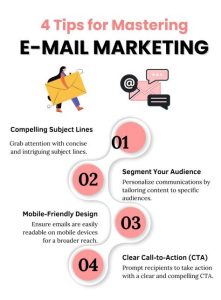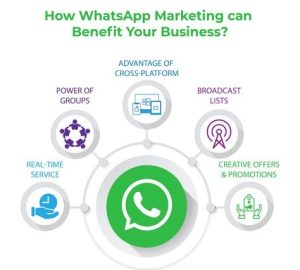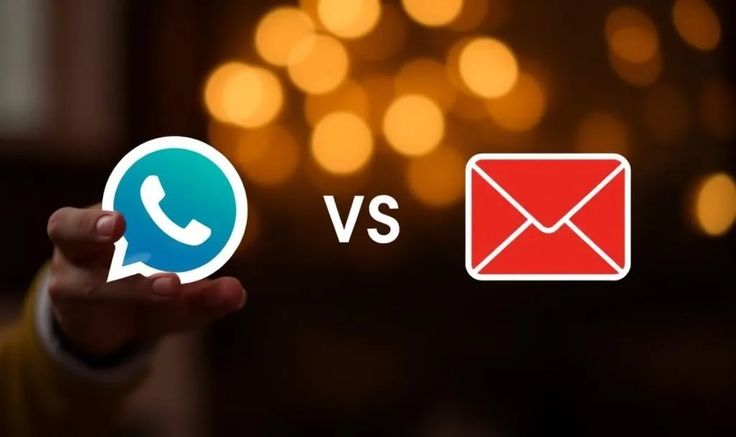Email Marketing vs WhatsApp Marketing – Which is Better?
In the world of digital marketing, two of the most effective communication channels are email marketing and WhatsApp marketing. Both have their unique advantages and uses, but which one is better for your business? Let’s break it down and compare these two strategies based on key factors.
1. Reach and Audience
Email Marketing

Email remains one of the most widely used forms of communication across the globe. It provides access to a broader audience, and almost everyone with an internet connection has an email account. With email marketing, you can reach your audience at any time, regardless of location.
WhatsApp Marketing
WhatsApp is more personal and widely used for instant communication. With over 2 billion users worldwide, it’s a great platform to connect directly with your audience. However, WhatsApp is more personalized and might have limitations in targeting large-scale audiences like email does.
Winner: Email Marketing (due to its larger user base and broader reach)
2. Engagement and Open Rates
Email Marketing
Open rates for emails vary but generally hover around 15-30% depending on factors like subject lines, content quality, and your audience. Email marketing allows you to build a nurturing relationship through detailed content, promotions, and newsletters.
WhatsApp Marketing
WhatsApp has a much higher engagement rate, with open rates as high as 90%. Messages are often read within minutes due to its personal and immediate nature. This makes WhatsApp an excellent channel for urgent promotions, customer service, and time-sensitive updates.
Winner: WhatsApp Marketing (due to higher open rates and immediate engagement)
3. Cost-Effectiveness
Email Marketing
Most email marketing tools offer affordable plans, and the cost of sending emails is minimal compared to other forms of digital marketing. You can send bulk emails to a large audience for a low cost, making it an excellent choice for businesses with a large customer base.
WhatsApp Marketing
WhatsApp itself is free, but WhatsApp Business tools or third-party platforms to manage large campaigns often come with a cost. Moreover, sending messages manually can be time-consuming, especially for large groups.
Winner: Email Marketing (due to lower cost for mass communication)
4. Personalization and Customer Interaction
Email Marketing
Email marketing allows for personalization through name, past purchases, and custom offers. It is well-suited for detailed content, such as newsletters, product launches, and information-heavy emails.
WhatsApp Marketing
WhatsApp is more direct and personal, making it ideal for one-on-one conversations, customer service, and support. You can send personalized messages in real-time, but it’s harder to scale up as efficiently as email marketing.
Winner: WhatsApp Marketing (for personalized, direct communication)
5. Ease of Use and Automation
Email Marketing
Email marketing offers robust automation tools. You can schedule campaigns, set up welcome series, and create drip email sequences. It’s relatively easy to use with platforms like Mailchimp, ConvertKit, and others.
WhatsApp Marketing
WhatsApp does have automation features with WhatsApp Business, but it’s more manual. For larger campaigns, businesses often need third-party tools to automate and manage multiple conversations.
Winner: Email Marketing (due to more advanced automation tools)
6. Security and Privacy
Email Marketing
Emails are typically secure when using trusted platforms, and your audience can choose to opt-in or opt-out as per GDPR guidelines.
WhatsApp Marketing

WhatsApp provides end-to-end encryption for personal messages, but spamming can be an issue. For businesses, WhatsApp requires customer consent to send messages, and spamming is a serious concern.
Winner: Email Marketing (more structured privacy and compliance features)
7. Types of Content You Can Share
Email Marketing
With email, you can send long-form content, newsletters, product details, images, and attachments. It’s ideal for in-depth information and building trust over time.
WhatsApp Marketing
WhatsApp is best for short-form content, like quick updates, images, videos, and interactive content. It’s ideal for immediate responses, discounts, and quick updates.
Winner: Email Marketing (for richer, more detailed content)
Conclusion: Email Marketing vs WhatsApp Marketing
Both Email Marketing and WhatsApp Marketing offer unique benefits for businesses. Here’s a summary:
-
Email Marketing is ideal for long-term relationships, bulk communication, and detailed content.
-
WhatsApp Marketing is best for real-time communication, high engagement, and personalized interaction.
In the end, the best choice depends on your business goals. A combination of both strategies can provide the most effective results — use email marketing for in-depth communication and WhatsApp marketing for quick, personalized engagement.

Leave a Reply